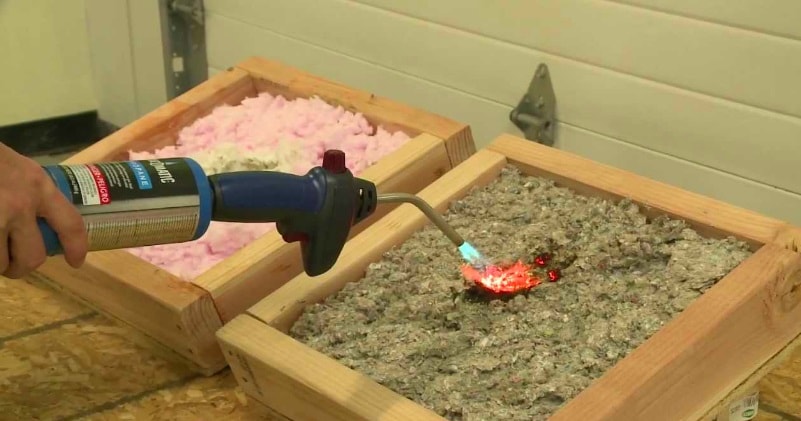Fire rating of insulation materials is something often overlooked not only in energy-efficient upgrades,but also in new construction. There are some code-mandated guidelines for using different types of insulation in different areas of the house. Dr. Energy Saver
source/image: Dr. Energy Saver
But at Dr. Energy Saver, we believe that the fire safety of homes and buildings can be greatly improved with the right choice of materials.This is not a scientific test. The purpose of this video is to demonstrate the significant differences in the way different insulation materials behave when exposed to fire.read more: Dr. Energy Saver
Using a propane torch, Larry put all the most common types of insulation to the test, including fiberglass (faced and unfaced), open-cell foam, closed-cell foam, open-cell foam with FSK paper, polyisocyanurate foam, fire resistant open-cell foam, expanded polystyrene foam, extruded polystyrene foam, fire block foam, denim insulation, AirKrete injection foam, cellulose and Rockwool insulation.
Advertisement
According to this demonstration, the best performing materials by far were AirKrete injection foam, cellulose and Rockwool, but Larry explains that this should not constitute grounds for avoiding the use any of the other materials, because each different material has its specific application. When it comes to green building and remodeling, there is no one-size-fits-all solution./Dr. Energy Saver











